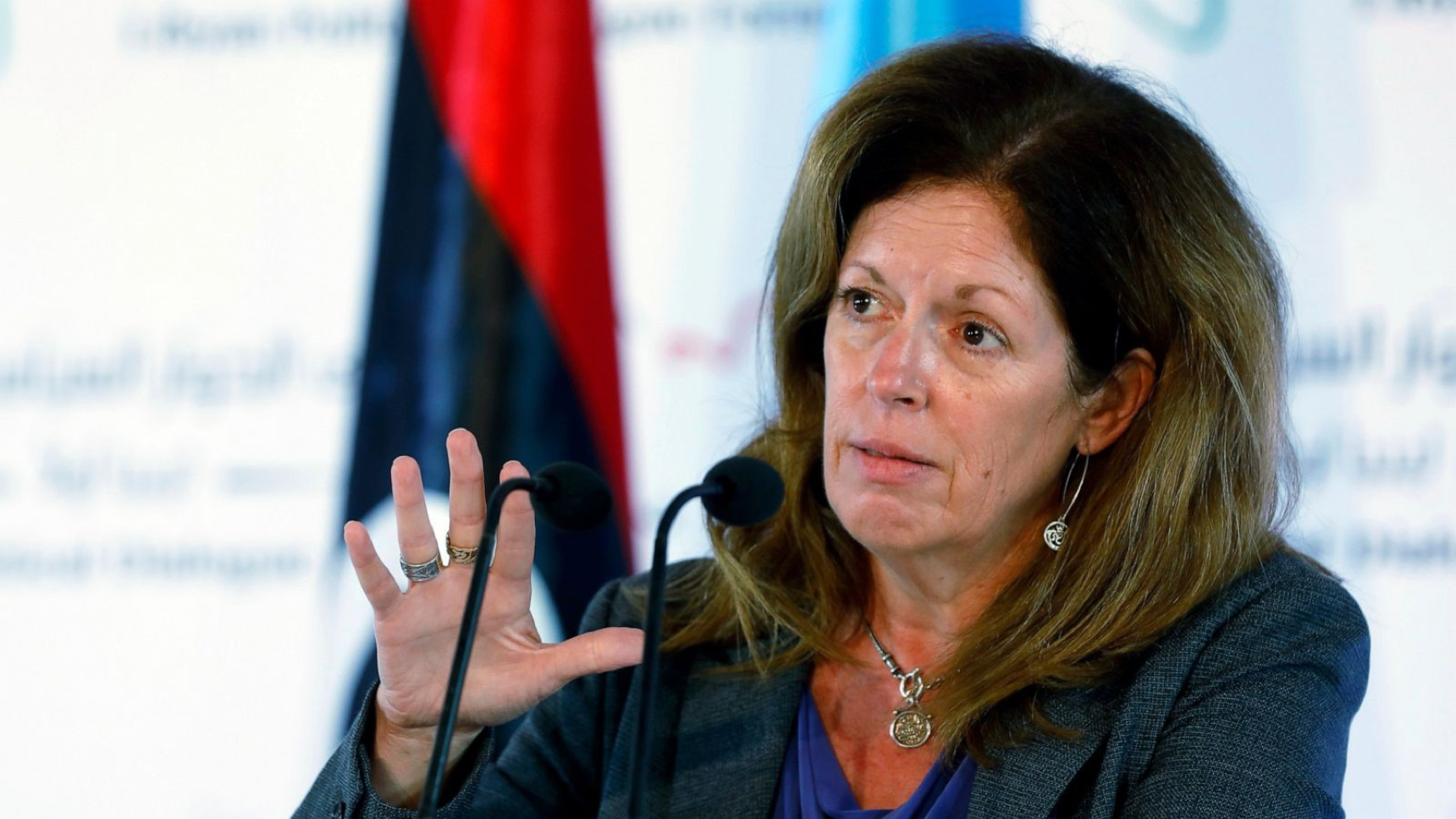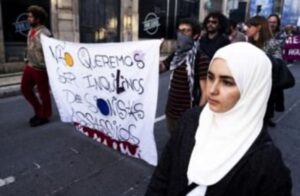The head of the U.N. mission in Libya said Thursday that a top military commander who runs eastern regions has given his backing to efforts to unite the divided country around an interim government before elections can be held late this year.
Stephanie Williams, the U.N. secretary-general’s acting special representative in Libya, expressed hope that a 5-day meeting near Geneva this week would culminate Friday with the selection of an interim prime minister and a three-person Presidency Council.
The selections are seen as a key step for Libya nearly a decade after the ouster and death of longtime leader Moammar Gadhafi. The meeting, the Libyan Political Dialogue Forum, has brought together 75 delegates.
The devastated and lawless North African country is split between two rival governments — the internationally recognized one based in the capital, Tripoli, and another in the east. Turkey supports Tripoli, while Egypt, Russia and the United Arab Emirates back the forces of Khalifa Hifter, a military commander who runs most of the east and south.
Hifter’s forces launched an offensive in April 2019 to try and capture Tripoli. His campaign collapsed last June, when the Tripoli-allied militias, with heavy Turkish support, pushed his forces away from the capital.
Williams, an American diplomat who is serving in a temporary role as mission chief, said in an interview that she spoke to Hifter last week who told her he was “fully supportive” of the U.N. efforts.
Once the caretaker administration is assembled, she said, both of the current governments would disappear.
“Parallel institutions go away: You have unity of institutions,” Williams said in an interview from the U.N.’s sprawling compound in Geneva.
The comments came the same day her office announced the start of a seventh round of talks involving a joint military committee to help cement a cease-fire that has largely held since it was signed in October in Geneva.
The meeting is focusing on opening a coastal road along the Mediterranean “to enable safe passage of citizens and goods,” which could involve help from demining experts and work to clear “war remnants,” a statement said.
The U.N. Security Council requested the secretary-general Thursday to swiftly deploy an advance team to Libya as a first step to sending cease-fire monitors.
But the presence of foreign fighters and mercenaries, including Turks, Russians, Syrians, Sudanese and Chadians, remains an unknown for the country’s efforts toward stability. Williams has cautioned about their presence, estimating in December that they numbered at least 20,000.
“It’s really not rocket science, is it? It’s not,” she said. “The Libyans, in a sense, need to be left alone to work together to rebuild their country, which has a lot of promise.”
The selection of the interim government is set to cap a diplomatic effort begun in Berlin last year involving military, economic and political tracks. Previous diplomatic initiatives to end the conflict have collapsed. These latest talks, however, came amid heavy international pressure.
The Libyan Political Dialogue Forum is choosing the interim authority that will oversee Libya as part of an effort to rebuild state institutions and lead to a national election on Dec. 24.
Twenty-one candidates are running for prime minister, and 24 are vying for the presidential council posts.
Late Thursday, the U.N. said no candidate in the race for the Presidency Council had reached the required 70% threshold. So the forum will meet on Friday to vote on lists — made up of three council candidates and one prime minister candidate — that get a required number of endorsements as part of a pre-arranged procedure.
Williams said the prime ministerial candidates were required to commit to various pledges, such as appointing women to at least 30% of senior executive leadership positions and respecting human rights.
Claudia Gazzini, a Libya expert at the International Crisis Group, suggested the gathering near Geneva would have been almost unthinkable just months ago, calling it a “great achievement.”
“The fact that the UN envoy reached this point, having rival constituencies with their representatives gathered in Geneva — even discussing the notion of electing a new government of national unity — is rather surreal,” she said.
But Gazzini cautioned against “illusions” that the interim government might “radically change the reality on the ground in terms of security, coast guard and management of prisons or detention centers for migrants.”
She also advised vigilance about the reaction of Hifter’s forces and “whether the two rival governments actually say, ‘Great, we have a new government — Thank you very much. I’m going to pack up and leave’.”
Up to now, Gazzini added, she’s seen “no pledge of dissolution” from either side.




